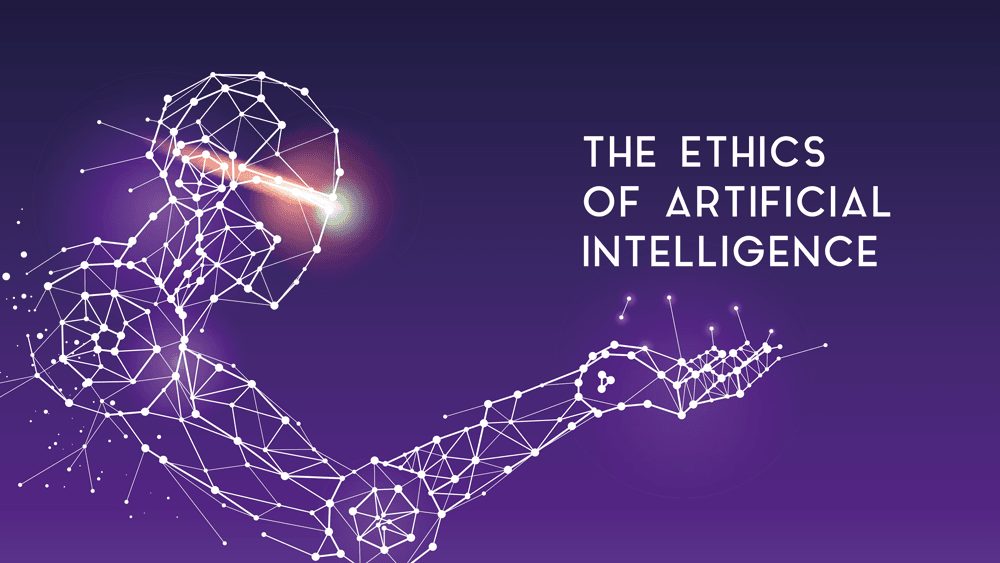

As we delve into the fascinating world of artificial intelligence and its ethical implications, it’s crucial to consider the various perspectives and challenges that arise. Let’s learn more about this topic below with 2048 Unblocked. The rapid advancement of AI technology has brought about a new era of innovation and possibilities, but it also raises important questions about its impact on society, privacy, and human autonomy.
Artificial Intelligence (AI) has emerged as one of the most transformative technologies of our time, revolutionizing industries and reshaping the way we live and work. From voice assistants and recommendation systems to autonomous vehicles and advanced robotics, AI is becoming increasingly integrated into our daily lives. As we witness this technological revolution unfold, it’s essential to examine the ethical implications and societal impact of AI.
The development of AI has been driven by significant advancements in machine learning, deep learning, and neural networks. These technologies enable computers to process vast amounts of data, recognize patterns, and make decisions with unprecedented accuracy and speed. However, as AI systems become more sophisticated and autonomous, we must grapple with complex ethical questions surrounding their use and deployment.
One of the primary concerns surrounding AI is its potential impact on the job market. While AI has the potential to automate many routine tasks and increase productivity, it also raises fears about widespread job displacement. As AI systems become more capable of performing complex cognitive tasks, there is growing concern about the future of work and the need for reskilling and upskilling the workforce to adapt to this new technological landscape.
Read more: The Truth About Deepfake Technology and Its Dangers
As AI continues to evolve and permeate various aspects of our lives, it’s crucial to address the ethical considerations that arise from its development and deployment. These ethical concerns span a wide range of issues, from data privacy and algorithmic bias to the potential for AI to be used in harmful or manipulative ways.
One of the most pressing ethical concerns surrounding AI is the issue of data privacy and security. AI systems rely on vast amounts of data to learn and make decisions, often collecting and processing sensitive personal information. This raises questions about how this data is collected, stored, and used, as well as the potential for data breaches and misuse.
To address these concerns, it’s essential to implement robust data protection measures and establish clear guidelines for the ethical use of personal data in AI systems. This includes ensuring transparency in data collection practices, obtaining informed consent from users, and implementing strong security protocols to protect sensitive information.
Another critical ethical consideration in AI development is the potential for algorithmic bias. AI systems are trained on historical data, which may contain inherent biases reflecting societal inequalities and prejudices. If left unchecked, these biases can be perpetuated and amplified by AI systems, leading to unfair or discriminatory outcomes in areas such as hiring, lending, and criminal justice.
Addressing algorithmic bias requires a multi-faceted approach, including diverse representation in AI development teams, careful curation of training data, and ongoing monitoring and auditing of AI systems for fairness and equity. It’s also crucial to develop transparent and explainable AI models that allow for scrutiny and accountability.
As AI systems become more advanced and autonomous, questions arise about their decision-making capabilities and the accountability for their actions. In fields such as healthcare, finance, and autonomous vehicles, AI systems are increasingly being entrusted with making critical decisions that can have significant consequences for human lives and well-being.
This raises important ethical questions about the extent to which we should rely on AI for decision-making and how to ensure accountability when things go wrong. It’s essential to establish clear guidelines and regulatory frameworks for the use of AI in high-stakes decision-making scenarios, as well as mechanisms for human oversight and intervention when necessary.
As we look to the future of AI, it’s clear that this technology will continue to evolve and shape our world in profound ways. From advances in natural language processing and computer vision to the development of more sophisticated robotics and autonomous systems, the potential applications of AI are vast and far-reaching.
One of the most fascinating and potentially transformative developments in AI research is the pursuit of Artificial General Intelligence (AGI) and, eventually, superintelligence. AGI refers to AI systems that possess human-like general intelligence and problem-solving abilities across a wide range of domains. Superintelligence, on the other hand, describes AI systems that surpass human cognitive abilities in virtually every domain.
While the development of AGI and superintelligence remains a topic of debate and speculation, it raises profound ethical questions about the future of humanity and our relationship with intelligent machines. Some experts warn of the potential existential risks posed by superintelligent AI, while others see it as a path to solving some of humanity’s most pressing challenges.
The impact of AI on the job market and the future of work continues to be a topic of intense discussion and concern. While AI has the potential to automate many routine and repetitive tasks, it also has the potential to create new job opportunities and enhance human capabilities in various fields.
As we navigate this transition, it’s crucial to focus on developing education and training programs that prepare workers for the AI-driven economy. This includes emphasizing skills that are complementary to AI, such as creativity, emotional intelligence, and complex problem-solving.
As AI becomes increasingly integrated into our society, the need for robust ethical frameworks and governance structures becomes more pressing. This includes developing international standards and guidelines for the responsible development and deployment of AI, as well as mechanisms for oversight and accountability.
Many organizations and governments are already working to establish AI ethics boards and develop principles for responsible AI. These efforts aim to ensure that AI is developed and used in ways that align with human values and promote the greater good of society.
Read more: AI-Powered Gadgets You Can Actually Buy Today
As we continue to explore the ethics of artificial intelligence, it’s clear that this technology presents both immense opportunities and significant challenges. By addressing the ethical considerations surrounding AI development and deployment, we can work towards harnessing its potential to improve human lives while mitigating its risks and negative impacts.
The future of AI is not predetermined, and it’s up to us as a society to shape its development in ways that align with our values and aspirations. This requires ongoing dialogue, collaboration, and a commitment to responsible innovation across all sectors of society.
As we move forward into this AI-driven future, it’s essential to remain vigilant and proactive in addressing the ethical implications of this powerful technology. By doing so, we can ensure that AI serves as a force for good, enhancing human capabilities and contributing to a more prosperous and equitable world for all.